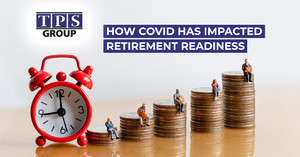Posted on Apr 16, 2021
Dawn and Carlos, a married couple in their early sixties, had both worked in the nonprofit sector for most of their careers. They had saved for retirement in their employers’ 403(b) plans for many years and had set up a plan where both would retire at age 65.
And then the pandemic hit. Carlos was laid off; Dawn’s hours were reduced; and their adult daughter, also suddenly unemployed, moved back home with them with her two young children. It was a financial setback for all concerned, and a year after the lay-off, Carlos was still unemployed. Drawing down on their emergency savings to make ends meet and help support their daughter and grandkids, Carlos and Dawn have had to put their retirement plans on indefinite hold.
Similar scenarios are playing out throughout the country as people deal with the massive economic toll of COVID-19. The National Institute on Retirement Security (NIRS) issued a report in February 2021 addressing Americans’ concerns and plans for retirement. More than half stated that the pandemic has increased their fears that they are not on track to achieve financial security in retirement, and many are postponing retirement. Sixty-five percent think it’s likely they will have to work beyond retirement age in order to afford retirement at a future date.[1]
Besides dipping into emergency savings, millions of Americans are decreasing their retirement plan contributions, taking loans from their retirement accounts, and withdrawing retirement savings prematurely. While the CARES Act has made it possible for eligible individuals to take penalty-free emergency withdrawals from their retirement accounts due to the pandemic, the long-term impact on retirement readiness is apparent. Diminished savings and lost investment gains can be especially severe for those on the cusp of retirement.
In addition, older Americans who have been laid off and are not ready for retirement may find it difficult to find employment at their previous salary level. COVID-related and other health concerns have also derailed retirement plans for many, with some individuals leaving the working world years before they intended. Even younger adults, especially those saddled with large student debt and facing reduced employment opportunities may end up postponing saving for retirement.
The research finds that except for the wealthy, the majority of Americans fear a looming retirement crisis, regardless of their political party affiliation.
This material is provided for informational purposes only, and is not intended as authoritative guidance, legal advice, or assurance of compliance with state and federal regulations.
[1] https://www.nirsonline.org/wp-content/uploads/2021/02/FINAL-Retirement-Insecurity-2021-.pdf

